The W Suite | For the longest time, decision takers were men: Tanvi Shukla
Diversity in the workforce has become a necessity today, and more so in the leadership positions. It can’t be denied that women bring a high level of creativity and empathy while solving problems and handling crises. Women leaders bring to the table a different level of dexterity.
AdGully’s ‘The W-Suite’ series features interactions with influential women leaders in India, who share some deep insights on what being a woman leader means in India’s business landscape, the mantras to succeed, achieving work-life balance, pay parity and much more.
With over a decade of experience in the field of journalism, Tanvi Shukla, News Editor, Mirror Now, is one of the most versatile journalists. Shukla hosts the channel’s prime time show, ‘The Last Word’, that focuses on making authorities accountable, campaigning against injustice in the society, spreading awareness on crucial issues and initiating dialogue on subjects considered taboo. With her flair and versatility, Shukla breaks the clutter by connecting with the viewer directly in an otherwise chaotic space. Her rich experience in covering economy and business, including investigative reporting, adds a unique facet to her profile.
Shukla voices prominent issues prevalent in the society. Her debate show on Mirror Now, ‘The Last Word’, voices the aspirations of young progressive India that will lead the country into its next era of development – as a nation and as a society. The Kathua rape and murder issue, the Transparent Political Funding campaign, campaign to fight online troll, have been some of her high points.
Her zeal for bringing about a change in the society is mirrored in her thought provoking discussions that gets the audience to question and think for themselves. Assertive and strong-willed by nature, Shukla is a young, progressive and fiery voice that stands for the citizens of this country.
How do you define today’s woman leader?
A woman leader in today’s scenario, or anytime else, would be a person who is strong, with a great amount of clarity in mind, independent, who is aware of her rights and duties, knows how to strike a balance, and takes her team along. Basically, the leadership qualities that you see in any other person leading an organisation or a team, exactly that.
What do you think are the foremost attributes that a woman in today’s business ecosystem must possess?
Like I said, apart from clarity of vision and direction, the fact is that they are also aware and sensitive to the needs of their team, thus it becomes easier to take them along in the direction she wants to take the business. And a woman who is bold, smart, assertive, and well aware of what she is, what she can do, and what her own skills are, is somebody who will be able to do the job very easily and that’s what we are seeing in most of the segments in any industry. In any kind of organisation, women who are actually leading from the front, know it is a very difficult job, but are ready to do that because they believe they belong there and they believe that they have it in them.
Despite the qualification, attitude and experience, why do we not have the expected number of women decision makers in boardroom decision making?
I think it is changing and it is a larger cultural issue that we’ve had. I don’t think it’s limited to India; rather it is across the world. In boardrooms, if you look at the higher decision makers, you’ll usually see lesser number of women. It is the mindset that needs to change. For the longest time we’ve had decision takers who were men, who don’t understand what kind of work environment must be created to give equal opportunities to both genders and to give that enabling environment to a woman who is as skilled and capable as you are and is also choosing to fulfill her other responsibilities. The people who have been in the boardrooms for the longest time have been men and it has defined the entire work environment and growth opportunities. It is no fault of that one gender, sometimes we are unable to see another’s point of view. You either need to be sensitised or you need to be the other gender to understand that, but I think that is gradually changing in society today.
We’ve now got maternity rules that have been implemented that makes it easier for a mother to also fulfill all her duties at work while managing her family at the same time. An environment has now been created that puts women on the same platform and hence, now you see a lot more women. Especially in media, for example, in Mirror Now it is literally about which professional is able to give their best and how to enable them and give them that environment so that they can deliver their best.
Also Read: The W Suite | Women leaders must know how to run a business: Tarunjeet Rattan
How acute is the gender pay gap today and what needs to be done to address it in a more effective manner?
You need awareness within the boardroom, in the decision making cabins and corridors, to understand that something that may have worked 50 years ago is not acceptable anymore. Women are putting in as much effort as men and are now demanding that they get paid for that. Yes, the problem of pay gap is there as much as it is in any other part of the world and as we are seeing across the world now, we see that some countries have taken a lead in ensuring that they will get equal pay. First, we should be making people aware of the fact that the gender pay gap exists and then demand the difference. Those in the boardrooms, in the decision making position are the ones with the responsibility to ensure that they lead this change.
When it comes to leadership effectiveness, do you think women are better than men?
I don’t think so. I don’t think it’s about what gender you are, whether you are a man or a woman, rather it is what skillsets you have and how you hone those skillsets. How you work towards and improve those skillsets. It could be a man or a woman, but it is really about the individual and the personality that they have. The debate is largely about what you say, we’ve had organisations where they are 80-90 per cent men and at some point it needed to be said that ‘we are better than you; give us a chance’. I think it is more about as a professional, I am better than 9 out of 10 people in this team and so I must be given a chance irrespective of my gender.
What are the five most effective lessons you have learnt as a woman leader?
I don’t see it as a man-woman separation and that helps my mindset a lot when I go in, because the ideas that I present, the decisions that I take is strictly as a professional and I see my entire team largely as a team of professionals. Gender, ethnicity, and sexuality – none of those things really matter and that actually is the most important thing. Of course, because I am a woman, I do know that there are challenges in our current work environment and there are more challenges for women right now because of the various biases that exist. So, a woman professional will have to have that extra strength and that extra level of patience and she should be able to hold on to her ground.
How challenging is the work-home balance?
It is not at all challenging if you have a supportive environment. I have a supportive set of parents and a husband. They are very understanding and supporting of my work, so I think that just makes the job easier and you’ve really got to love what you’re doing to see the difference. If you love your work – and obviously you love your family – then you will find time to balance it all. It is a little bit challenging in the beginning; most of us are not adept at that kind of time management. Once we do learn the art of time management, then I think given that we have 24 hours every single day, a lot can be done. Justice can be done to both sides.
How do corporates handle sexual harassment at the work place?
It’s a slow process. Yes, because of the rules that have been brought in, most of the corporates are at least setting up the system that you need to address these issues to make it easier for whoever the victim or the complainant is; to address the issue, to allow them to speak and share what they’ve gone through and to take action after that. But there still exists this power setup in most industries in our country today, where people just want to suppress the news; brush it away; not address it; and that’s the biggest challenge. So, even if you have the systems and processes in place, you need strong, aware leaders in those organisations to acknowledge that turning away and brushing it under the carpet for the sake of the reputation of your organisation or the reputation of anybody in that chain of command who is involved in that incident is not the priority. The priority is to ensure that such an incidence does not happen; people are aware of what is alright to say and do and what is not alright to say and do and so, the more you talk about it, the more you make your employees aware of the fact. The more you ensure that they know such behaviour won’t be tolerated, I think the better it will be. That change is what I think individual leaders need to bring about in their organisations. Systemically speaking the laws are there, the processes are there, the rules are in place; it’s just the intent of those on top that needs to change on a more widespread level.
Also Read: The W Suite | Women need to fight their inner fear and open up: Srija Chatterjee
Any tips to women who want to climb up the ladder?
Be yourself. Be confident. Know that you have a great number of qualities and abilities like any other individual out there and don’t get bogged down by the fact that there are gender-based challenges at work. If you know who you are and if you can find the confidence within yourself and from your family members and colleagues, then it will be very easy. Just do your work; focus on that and I think it will work. I’m going to be very frank about it; it is a very challenging industry as you know. It demands a lot out of you. All of us put in 8-12 hours and I don’t think we count how many hours we put it. At the end of the day it is reporting, telling people the news, and telling people stories. The minute that becomes your passion, everything else falls by the side.
If you think you are good at your job, then irrespective of whether you are a man or a woman, you will be able to do great. Yes, there will be challenges, you will come across people who will have biases and many a times they don’t even realise that they are being sexist about the way they are behaving. For women who are about to enter any kind of workspace, you have to be aware that this will happen and you will have to develop your own style of handling it and make the other person aware of what’s right and what’s not, asserting that you are here as a professional and that’s how you should be treated.


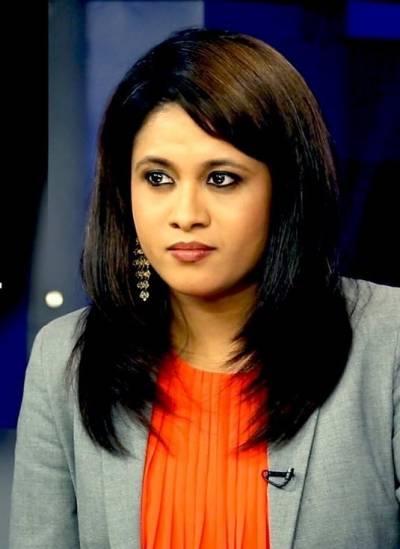
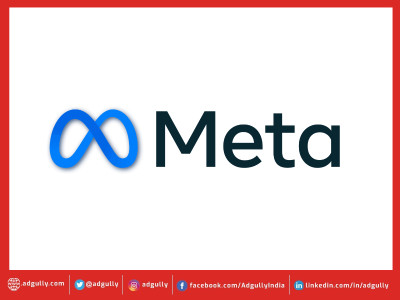


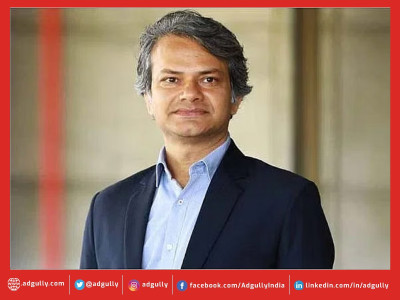


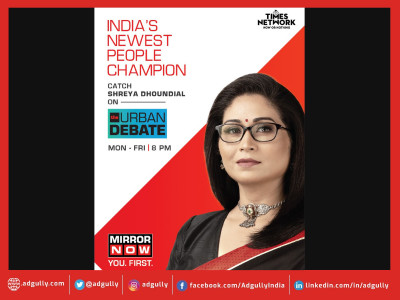

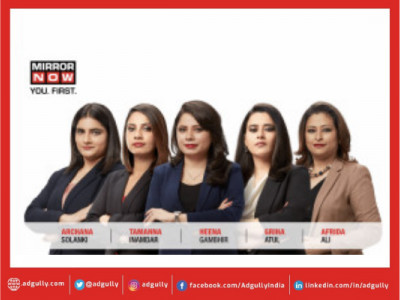


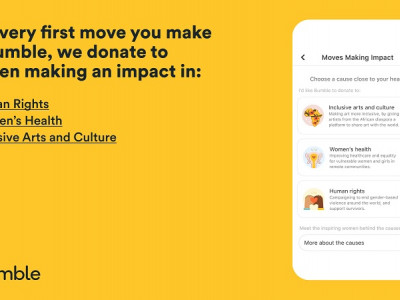


Share
Facebook
YouTube
Tweet
Twitter
LinkedIn